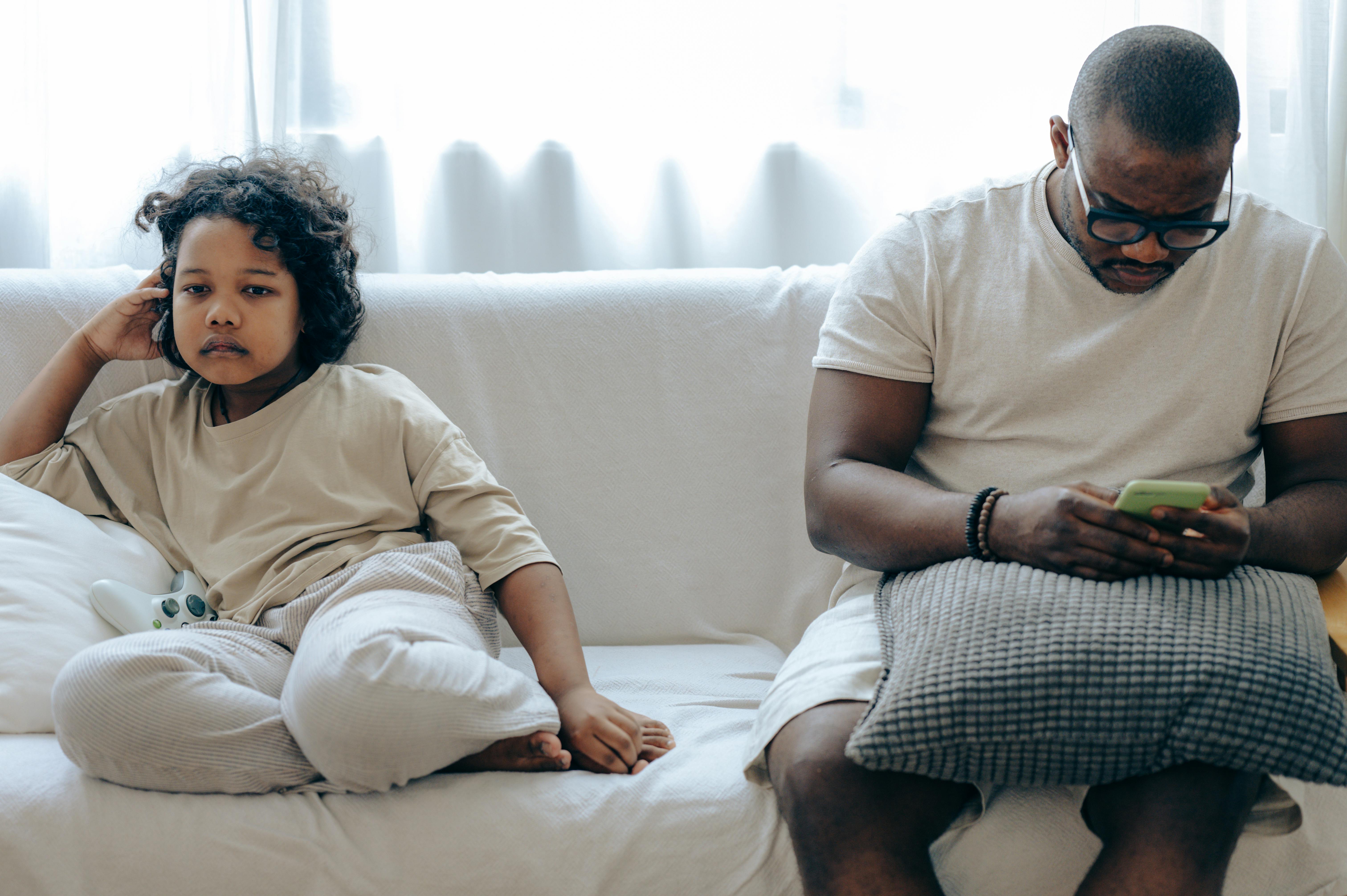Parental phubbing is a term used to describe a situation where parents pay more attention to their phones or other digital devices than their children when they spend time together. The word “phubbing” combines “phone” and “snubbing” and reflects how digital distractions can lead to emotional disconnection in relationships. While the term initially emerged in 2012 to describe social behaviors among adults, its relevance in parenting highlights a growing concern in today’s digital age.
In the context of parenting, phubbing can have far-reaching consequences on the emotional, psychological, and developmental well-being of children. This article will explore the origins of parental phubbing and its effects on young children and adolescents and provide practical tips to address the issue.

Understanding Parental Phubbing
In parenting, phubbing occurs when parents are distracted by their phones during moments that should be focused on their children, such as mealtime, playtime, or conversations. This behavior, though often unintentional, can leave children feeling undervalued, invisible, or rejected.
Even brief interruptions—like checking a notification or answering a quick text—can disrupt the emotional flow of a parent-child interaction. Over time, these micro-moments of disconnection accumulate and can lead to lasting consequences.
Effects on Young Children’s Development
For young children, quality parental attention is crucial for emotional and cognitive development. Responsive parenting—where parents are present, engaged, and emotionally available—builds the foundation for healthy development.
When parents are distracted by their devices, young children may experience the following:
- Attachment Issues: Secure attachment is essential for children to feel safe and valued. Phubbing can disrupt this bond, making children feel neglected.
- Delayed Language Skills: Engaging in conversations with children is a critical part of their language development. Distracted parenting reduces opportunities for meaningful interactions that build vocabulary and comprehension.
- Behavioral Problems: Feelings of neglect may lead to tantrums, defiance, or withdrawal as children struggle to regain their parents’ attention.
- Emotional Insecurity: When children feel ignored, they may develop anxiety or clinginess as they seek validation from their parents.
Effects on Adolescents
The need for parental attention and validation remains significant for adolescents, even as they strive for independence. Teenage years are critical for developing self-esteem, emotional regulation, and social skills.
Phubbing during this stage can lead to:
- Lower Self-Esteem: Teens who feel “snubbed” by their parents may internalize the lack of attention, leading to feelings of inadequacy or rejection.
- Risk of Depression: A 2017 study published in the Journal of Child Development found that parental phubbing is associated with increased depressive symptoms in teenagers.
- Problematic Internet Use: Adolescents often model their parents’ behaviors. When they see excessive phone use, they may adopt similar habits, leading to excessive screen time and reduced face-to-face interactions.
- Reduced Trust and Communication: Phubbing erodes the emotional connection between parents and teens, making it harder for adolescents to open up about their feelings or challenges.
Numerous studies have demonstrated that parental phubbing is associated with elevated levels of electronic media use among children. In addition, parental phubbing contributes to increased electronic media engagement in young children and shows a significant positive correlation between parental phubbing and children’s Internet gaming addiction
How to Reduce Parental Phubbing
The good news is that parental phubbing is preventable. Here are practical tips for parents to reduce digital distractions and strengthen their relationships with their children:
1. Create Device-Free Zones
Establish tech-free spaces like the dining room or bedrooms in your home. During meals and bedtime, put devices aside and focus on engaging with your children. These moments are opportunities to deepen bonds and foster meaningful conversations.
2. Set Specific “Phone-Off” Times
Decide on certain times of the day when devices are entirely off-limits, such as during family outings or weekend mornings. Use this time for undistracted play or activities with your children.
3. Be a Role Model
Children mirror their parents’ behaviors. Demonstrate healthy device habits by limiting your screen time and showing your children that real-life interactions take priority.
4. Use Technology Intentionally
If you need to use your phone, explain why it’s important to your child. For example, say, “I need to send one work email, but then I’ll put my phone away and spend time with you.” This helps your child understand the purpose of your phone use.
5. Prioritize Quality Time
Even 15–30 minutes of uninterrupted time with your child can make a big difference. Whether it’s playing a game, reading a book, or simply talking, these moments show your child that they are your priority.
Shifting from Phubbing to Presence
Parenting in a digital world comes with unique challenges, but it also offers opportunities to model balance and intentionality. While technology is an essential part of modern life, it should never come at the expense of meaningful connections with your children.
By being mindful of parental phubbing, you’re fostering a stronger bond with your child and setting the foundation for healthy device use in their own lives. Remember, your presence and attention are your greatest gifts to your child.… Share on XRead Also:
